Today let me tell you all about the gods that are lurking in your loo.
Hey hey, this is Thersa Matsuura and you’re listening to Uncanny Japan.
Remember when I tried to gross you out back in episode 95. That time I talked about the jinmensou/人面瘡, yokai beasties, that erupt on your skin looking like human-faced growths or tumors. They start demanding to be fed and sometimes chat you up? Do you remember a week after that episode when Saturday Night Live did a hilarious and curiously coincidental show about meatballs popping up on a woman’s body. They had little faces and talked and sang. Yeah, that grossed out a lot of people, too.
I’m not saying this is going to be a thing, but how about today we talk about toilets? Don’t worry. It’s not as eyu~ as it sounds. In fact, let me introduce you to a couple toilet gods and some of the religion, folk beliefs, and superstitions around both the latrine and the deities who reside there.
Let me start off by reminding you this is episode 98 which means we’re two shows away from the big one hundred. You still have time to send me any spooky, weird, or freakily heartwarming experiences you’ve encountered while living or visiting Japan. I’m absolutely loving everything sent in so far. So much so, I think I will be able to do a part one and a part two because they’re all so good.
I’d also like to give a little nudge to please check out our second show Uncanny Robot Podcast. We’ve got several episodes out and I’m excited to say we’re finally finding our feet. The shows have evolved into these wonderfully weird audio dramas with fantastic sound design, absurd yet satisfying stories, and dare I say some pretty fancy voice acting.
The new direction of the show and catch copy is: “Old-Time Radio drama Meets Artificial Intelligence.” So a different and more energetic vibe than the episode I shared awhile back.
Uncanny Robot’s on all the podcasting apps, Youtube, of course, the website. And may I recommend the most recent Ai true crime adventure complete with reenactments. It’s called “Peppers and the Screaming Yoof, #5”. See if you can solve this bizarre batch of gruesome murders. Oh, and I have another mystery for you to solve.
I’m ordering some more stickers, so — before the next Uncanny Robot episode comes out — if you can guess what cartoon and what blockbuster Hollywood movie were tongue-and-cheekedly referenced in that story, dm, message, or email me your answers, and I’ll do a lottery and pick five listeners to to send both an Uncanny Japan and an Uncanny Robot sticker to.
Hint: the movie nod is a bit subtle and only one scene. But once you hear it, you can’t un-hear it. That’s the “Peppers and the Screaming Yoof, #5” episode at Uncanny Robot Podcast.
Toilet Gods: My Experience
Now let’s talk about toilets and what kind of divine beings hang out there.
I’ve seen a lot of restrooms during my time here in Japan. My mother-in-law — who we all know — is very superstitious and holds fast to many old traditions never had an ofuda – a fancy paper talisman – or a kamidana/神棚 (god shelf) in her bathroom. Had she, I would have asked a bunch of questions. And had she told me there was a toilet god, I would have been utterly delighted to learn more.
Over the years, I did kind of learn about them, though, but didn’t really get really interested until my recent trip to Kyoto. There one of the temples sold ofuda expressly for the purpose of hanging in your powder room to honor the god who dwelled there. So I bought one, came home, and started doing some reading.
I’m guessing most of these rituals have been lost over time, especially as indoor plumbing is now common. Ironically enough, that temple I bought the talisman at didn’t have a flush toilet. It was really gross.
Anyway, it wasn’t that long ago lavatories were a grungier, non flushing, deep pit affairs. I remember going to hi-obaachan’s — great grandma’s — house and she still had an old drop toilet. That was in the mid 1990s. Fun fact: a fun (albeit entirely uncouth) nickname for these old style privies is bakudan toire/爆弾トイレ. Toire is toilet. Bakudan is the word for bomb. I’ll just leave you with that for a moment.
Toilets are Dangerous
Believe it or not, restrooms back in the day were dangerous places. I mean they were dark, separated from the house, and they were literally very deep holes in the ground (or in older times above a river). Both the ground and river versions had two boards on which to place your feet. And if that’s not dangerous enough, don’t get me started on the tales of ninja hiding down there or the unholy things kappa were up to.
Anyway, these outhouses were especially dangerous for children. Children are small and their balance isn’t always great. It wasn’t unheard of for them to fall in and drown.
Secchin Mairi Tradition
Because of this there was a very interesting tradition called Secchin Mairi/雪隠参り. This involves a small ceremony on the seventh day after the birth of your child that has you taking your little bundle of joy out of the house for the first time. But where to you take them? Why to the outhouse, of course. But why would you do that?
I’ve read different things so I’m going to paraphrase and explain as best as I can. It seems there are a couple of reasons for this special trip. One is that the toilet is such a dangerous place, a place life can be lost. So by tilting your wee one to look down into that maw of yuckiness and potential death, it acts as an inoculation of sorts. By presenting the child to the place that is the gateway between this world and the Other World (death) you actually tether the child to this world of the living. I read some traditions pretend to actually feed the child excrement, too. Again, I said, pretend.
Depending on the area in Japan, visits were also made to the well (Sadako has done nothing if not teach us the perils of a well), the hearth (open fires a certainly a death trap for children), and the river (hazardous even in this modern world).
Kawaya-Gami
Now a second and nicer reason to bring your child to the lavatory is to visit the God of the Toilet. This diety who sits on its throne is not to be taken lightly. It is, in fact, a very important and powerful household god. And I’ll tell you why in just a minute. But first let’s look at what the god is called. You might hear it go by: Kawaya-gami/厠神, Benjo-gami /便所神 or Toire no kamisama/トイレの神様
The word kami or gami or kami-sama are all the same: god. You might remember toire as the Japanese pronunciation of toilet. And if you study Japanese, you might know the word benjo as a crude word for toilet. But what the heck is kawaya-gami.
This one’s interesting. Waaay back in the day, in villages that had streams nearby, toilets were built over them. The kanji for kawaya/厠 is different, but you can’t help thinking kawa (river) and ya (house or hut) make a lot of sense, considering. Perhaps the characters changed over the years. There is also the thought that it’s not kawa but gawa, meaning “next to”, as the outhouse was next to the main house. Anyway, mention of a kawaya being a toilet can be found in the ancient text Kojiki (back in 712). And while while no one would called their bathroom that, when referring to the restroom god, it’s still fair game.
Night Soil and Life
For those who didn’t use rivers, it was soon learned that this valuable night soil could be collected and used to fertilize crops. And this segues beautifully into why the toilet god is so important and powerful. The (shall we call it compost) from the outhouse was used to fertilize crops. Fertilizing crops led to food. Food fed the family, kept them not only healthy and even more important, alive. And this was definitely something to be thankful for.
Professor emeritus Watanabe Shouichi at Sophia University possibly sums it up best in his paper dated 1989.
“Our parents were raised by their parents; by eating rice and vegetables fertilized by their excrement we live on the excrement of parents in our turn. We exist in the world as a result of our parents’ bodily existence. We can say our own bodies exist as a result of the circulation of the excrement of our forefathers, or, as we would say now, it’s recycling.”
This quote as well as some of the information here is from a fascinating research paper published in International and Advanced Japanese Studies. Graduate School of Humanities and Social Sciences, University of Tsukuba by a PHD student, Marta Elzbeita Szczygiel. I’m so sorry for butchering your name, Marta. I’ll put a link to the paper in the show notes. The article is titled “Sociology of Waste in Christian Europe and Japan: Comparative Analysis of the Notion of Human Waste”. And it’s the paper you didn’t know you wanted to read, until you read it. Absolutely fascinating.
So there was the belief that a powerful and important deity lived inside your privy and therefore should be treated with respect. Sometimes offerings were made, paper talismans hung, even small kamidana – god shelves – constructed. We just talked about a healthy family being the product of a happy kawaya-gami, but also fertility and childbirth were associated with the diety as well.
Toilet God Superstitions
There are some superstitions that show as much. For example, if you have a clean toilet you will give birth to a good looking child. Opposite, if your toilet is nasty, your kid will be ugly.
Another: If a pregnant woman cleans the toilet she will have an easy delivery. Or similar, if a pregnant woman offers sekihan (sticky rice cooked with adzuki beans) to the Toilet God, then she will have an easy delivery.
What did Kawaya-gami Look Like?
There was also the belief that the Benjo gami didn’t like to be seen, so before you entered the outhouse you’d have to cough once to let it know you were there before opening the door so it could hide. Where would it hide? I’ll let you use your imagination on that one.
The god was also thought to be blind. I wonder if that has something to do with where it was hiding? Seriously. These jokes write themselves. I read also sometimes the god wasn’t only blind but also had a red spear. Not sure at all what’s up with that. But a courtesy cough before entering, so the god can hide sounds like the polite thing to do. Oh, one more, another site said the god had no hands.
The Buddhist Toilet God
Now all that is old folk belief and old wives tales rooted in Japan. But there’s more. The Buddhist idea of a toilet god is a little different.
Yes, Japanese Buddhism also has something to say about the lavatory. Dōgen the very well known Zen monk and writer penned in detail what to do in the washroom in chapter one of his Shoubougenzou from the 13th century.
He states that all temples must have an eastern quarter or tousu. Tousu is the Buddhist term for a toilet. I won’t go into details about how he says you should use the facilities — you can figure that out for yourself — although it’s interesting to note that he did specify which hand to use. Which I thought was specific only to Hinduism. Something else that got my attention was his instruction on how you’re supposed to press your hands together in prayer (gassho) to the Guardian of the Bathroom, Ususama Myoou/烏枢沙摩明王, then snap your fingers three times before squatting.
Ususama Myo-O
You caught that right? A new god name. Ususama Myouu wasn’t born out of Japanese history, he originated in India and is recognized in several sects of Buddhism: Tendai, Shingon, Zen, and Nichiren. In Tendai he is one of the great five gods or Myou. In Nichiren he is worshipped as both a toilet god and the fire god. In Indian mythology the god is called Agni, the god of fire. Fire purifies. Toilets are considered places that are unclean and thus need to be purified. So there ya go.
Ususama Myoou is one of the great guardian kings, their names all ending in Myoou. Myoou are super cool, fierce, dramatic, scary. Compared to the other Myoou, Ususama has more varied appearances. Sometimes having six arms, holding various implements, rings, beads, a sword. Tools you’d probably not want to see and contemplate while sitting on the pot. But then again, the Kawaya-gami had that red spear.
You can identify Ususama Myoou because he stands with one foot raised high off the ground, almost as if he doesn’t want to step in something. Ringed in fire, his hair often looks like fire and is blowing upward. He’s got a very angry expression on his face. I’ll put some images up on the website.
Oh, remember the toilet god is related to fertility also and childbirth? Well, here is where the Kawaya gami and Ususama Myo sort of overlap. Evidently, during the Heian Era boy children were desired, so Ususama Myoou could, if he felt so moved, change a girl fetus into a boy one.
Toire no Kamisama Song
That’s a lot. Like I said at the beginning, these traditions are mostly forgotten among youngsters these days. Except, about ten years ago, a singer named Uemura Kana released a song called “Toire no Kamisama/The Toilet God” about living with her grandmother and her grandmother telling her as a young girl that if she wanted to be beautiful she should clean the toilet very well. There, the grandmother said, was a beautiful god living there and if she kept the toilet clean then she would grow into a beautiful woman. So the girl cleaned the toilet every day. Nice one, grandma.
I’m kidding. There is another version of the Toire no Kamisama that says she is a beautiful woman not some dude with a spear. So that’s nice.
Anyway, Uemura Kana’s song was a huge hit here in 2010, which I think is delightful as it taught not only me but a whole other generation that there is this Toilet God and that we should pay them respect.
Okay, that’s that for today. If you’ve got a few moments go give that restroom of yours a scrubbing. Don’t forget to cough before you go it.
Thank you everyone so much for listening. Thank you patrons for being the absolute best. This months’ Bedtime Story is actually going to be a collection of various cat myth and folklore and superstitions from all over Japan. I’ve never done this before but it’s all really interesting and I’ve never seen most of this translated into English, so I’m sure it’ll be quite new.
Talk to you all again in two weeks. Bye bye!
Credits
Intro and outro music by Julyan Ray Matsuura
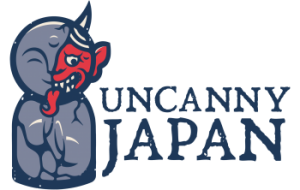
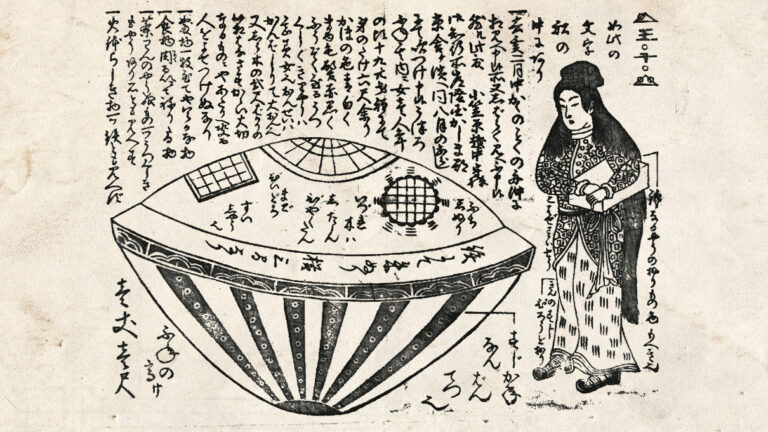
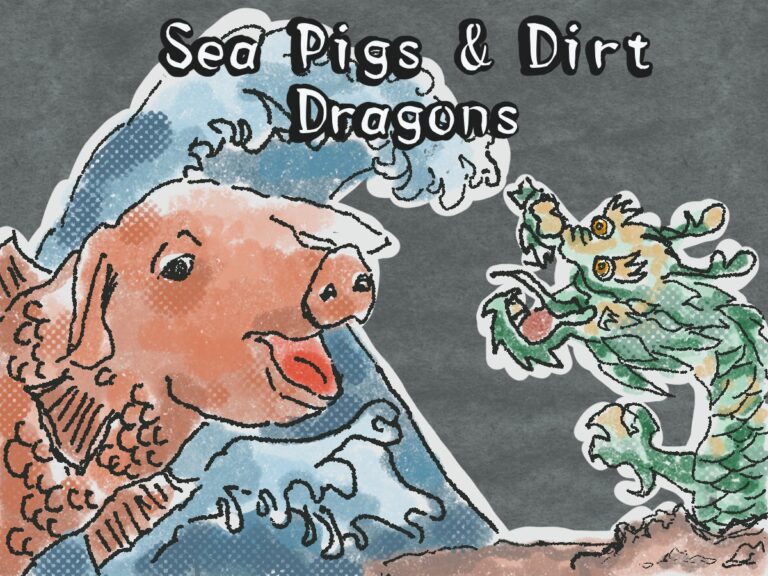
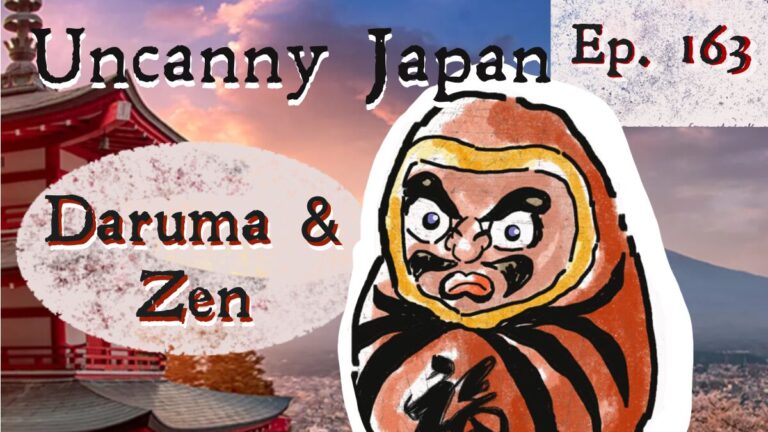
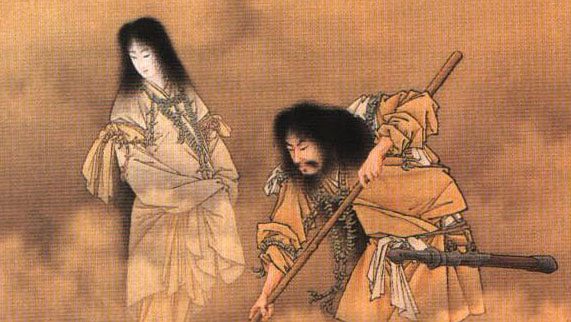


nice to know 😊 thanks for sharing and giving me some things to study on
Thank you so much for listening 🙏
Thank you